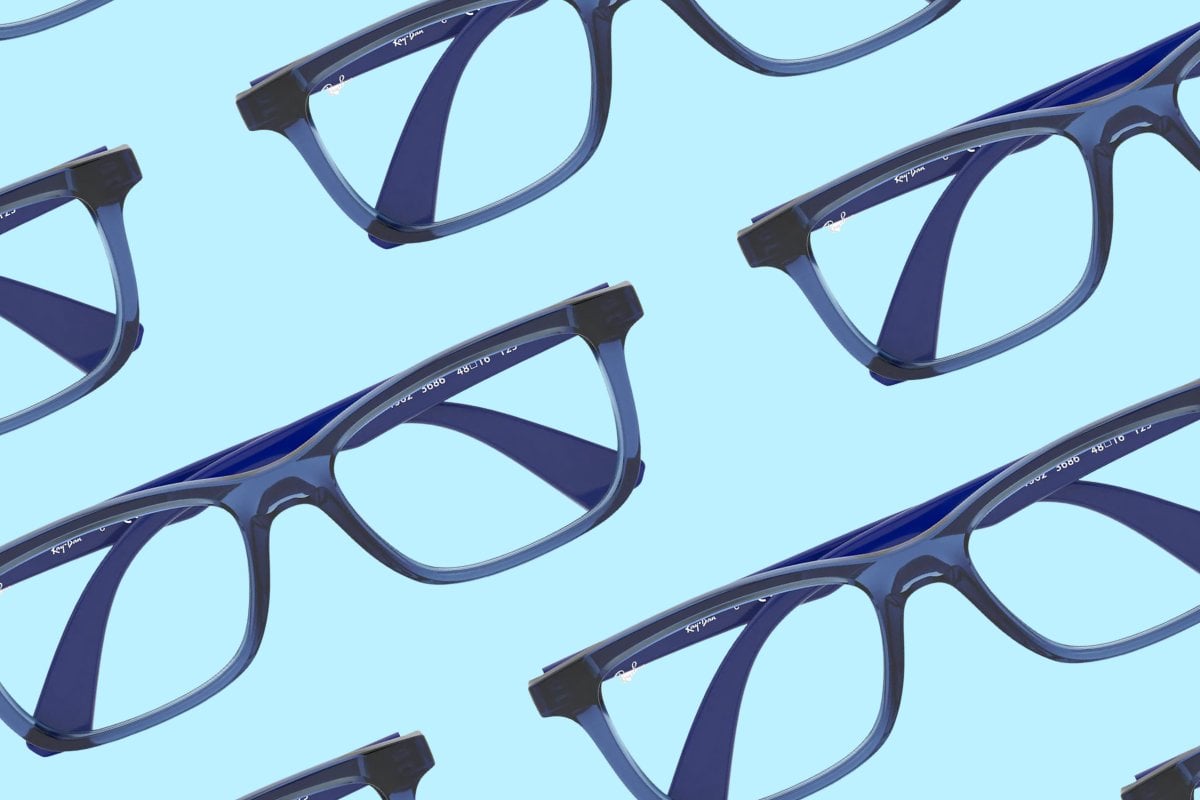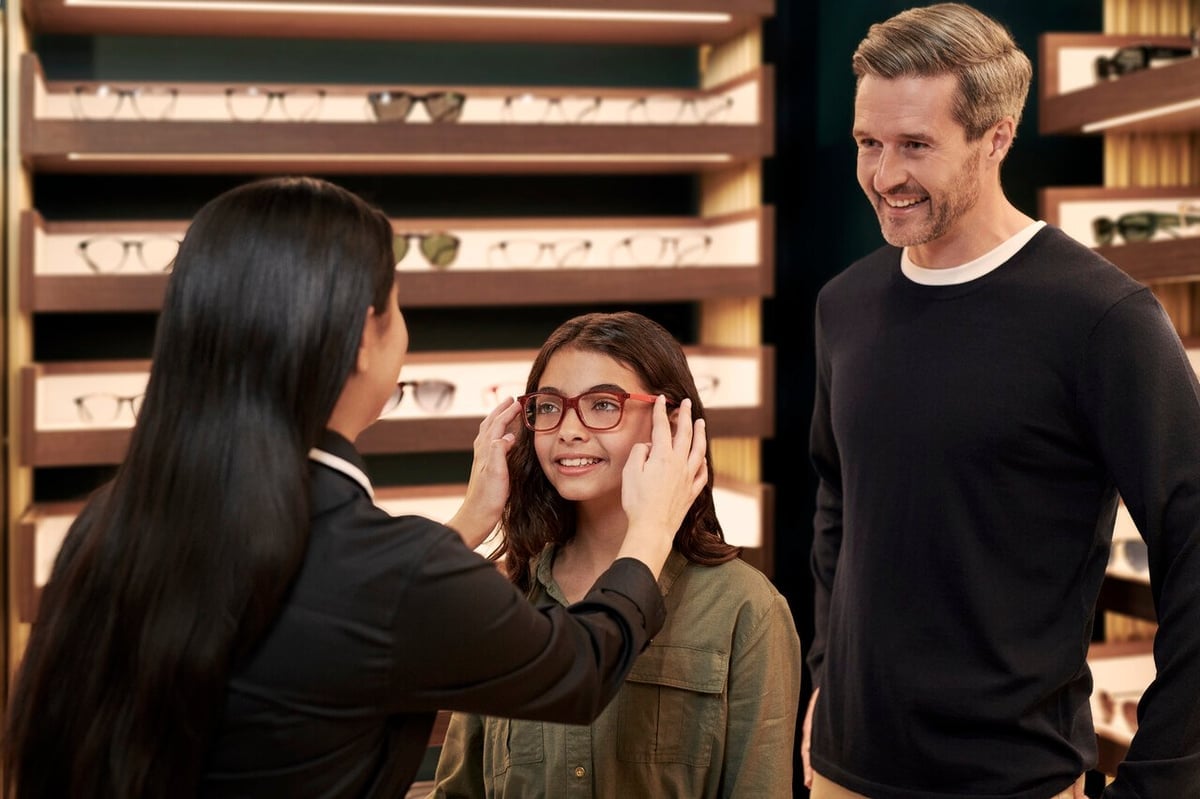

When it comes to our eyesight, there are a lot of misconceptions doing the rounds. “If you eat those carrots, you’ll get supersonic vision,” has been uttered by many an Aussie parent to a veggie-phobic kid. (Guilty.)
After my son was diagnosed with Myopia (also known as short-sightedness), I decided it was time to get clued up on all thing's eye health. Before his diagnosis at seven, we had no inkling anything was any different with his vision. When he first put on his special lenses and said, “Wow, I can see the leaves on the trees,” I was a mess.
Since then, I’ve been hell-bent on helping other parents make informed decisions about their family’s eye health. That’s why Mamamia called on Elizabeth Kodari, a Sydney-based OPSM optometrist, to help debunk some common eye myths.
Here’s exactly what she told us.
Myth #1: Wearing glasses will weaken your child’s eyes.
“Wearing glasses or contact lenses does not weaken our eyes. When we wear glasses our eye muscles can relax and work naturally. As glasses and contact lenses both work to correct our vision, when they are removed our eyes need to readjust and regain focus. This can cause the contrasting blurriness to be more noticeable."
Elizabeth explains that when it comes to Myopia, the opposite of this myth is true.
“Myopia is a condition where light is focused in front of the retina, causing objects at a distance to appear blurry. If your child has Myopia and doesn't wear the right prescription, it can cause their Myopia to progress faster."
Essilor Stellest Lenses can be found at OPSM. The lenses slow down Myopia progression by 67 per cent on average, compared to single vision lenses, when worn 12 hours a day.
 Image: OPSM.
Image: OPSM.




























































































